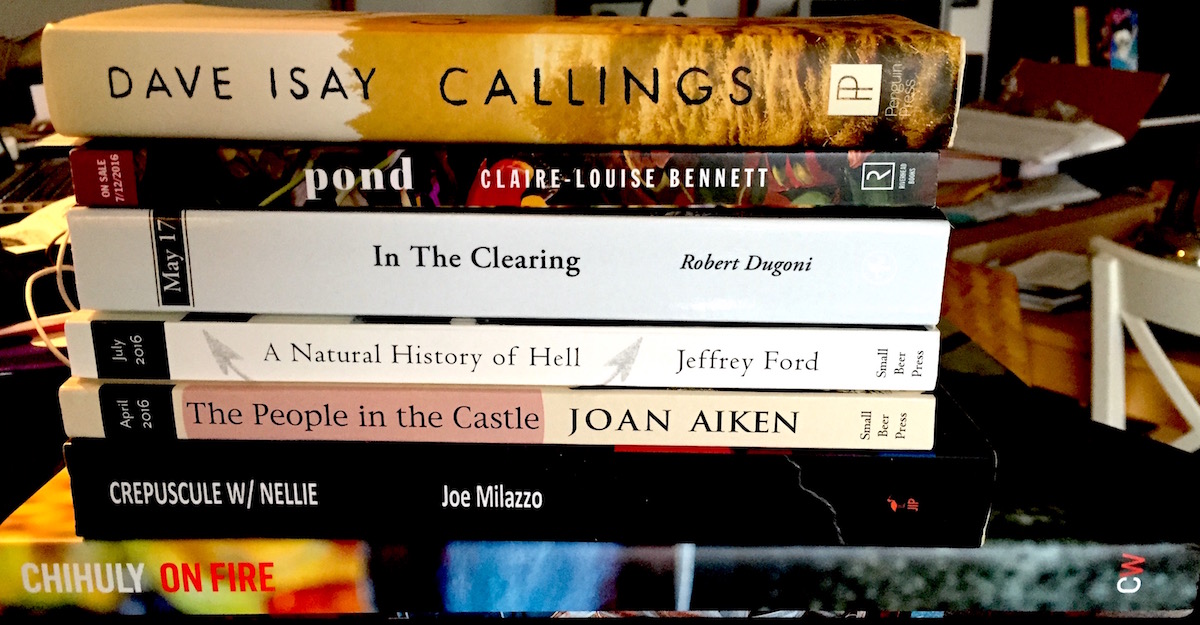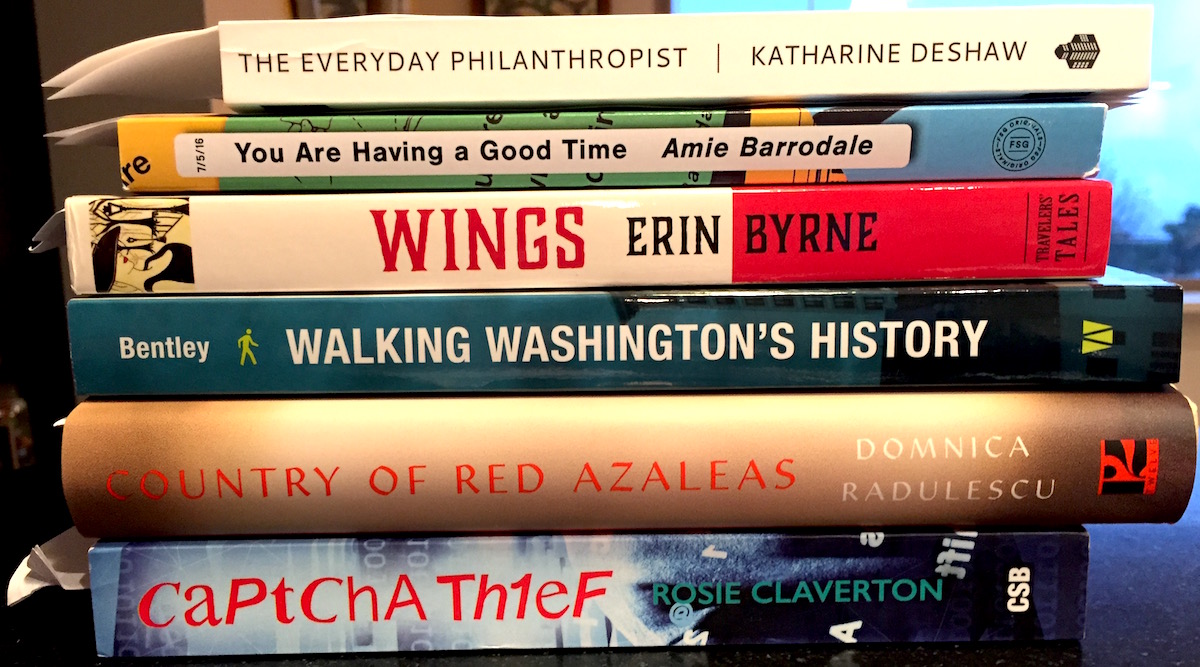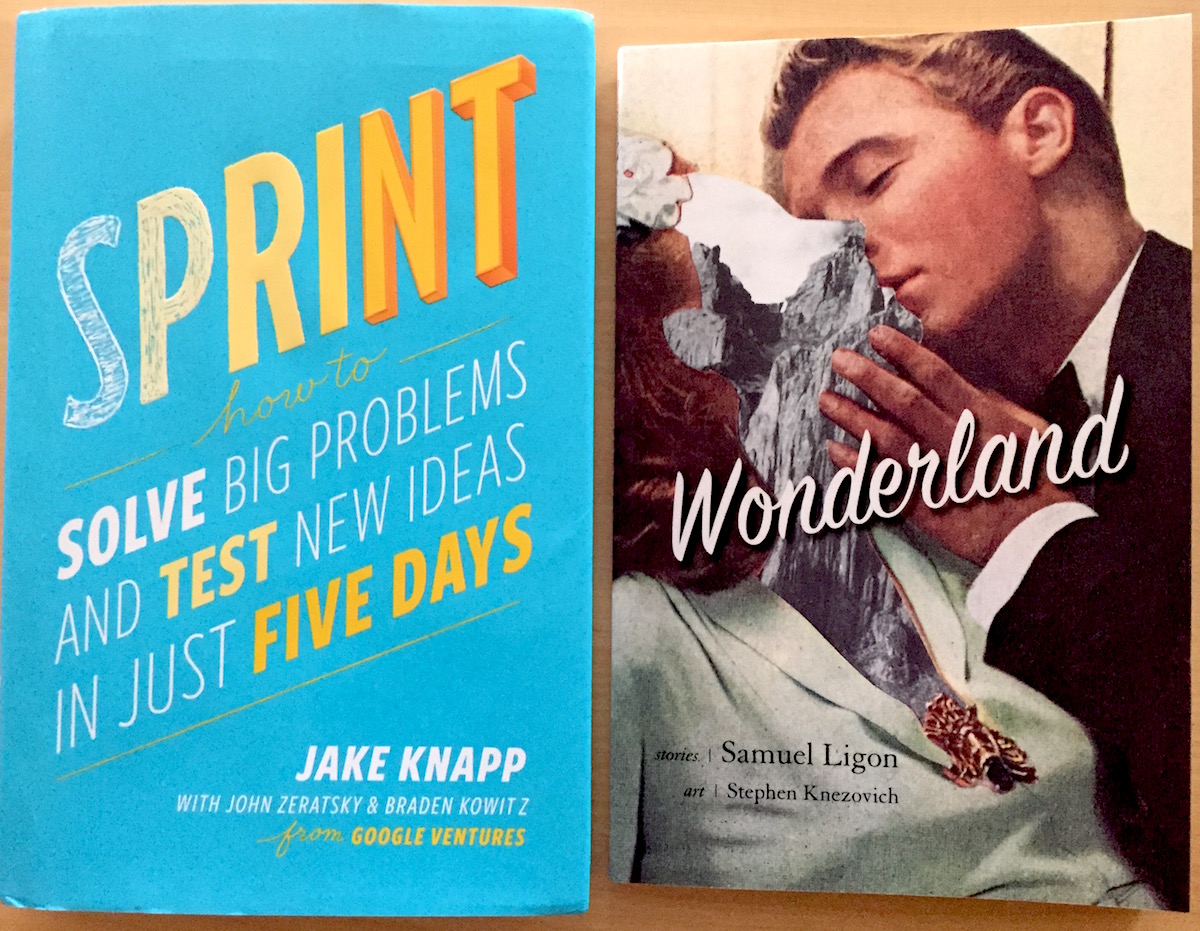What are the kids reading?
To celebrate the last week of our monthlong Seattle school library tour, we thought we’d ask a pair of librarians to share in their own words what books their students are reading right now.
Elaine Harger is a school librarian at Washington Middle School. She’s also the author of a new book titled Which Side Are You On? Seven Social Responsibility Debates in American Librarianship, 1990-2015.
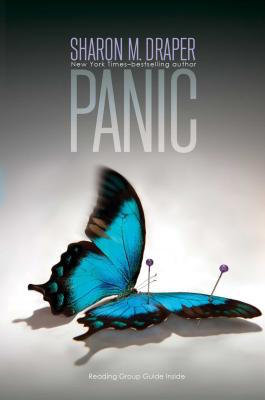
Janet Woodward is a school librarian at Garfield High School. She also graciously offered a little insight into how she’s integrating e-books into the collection.The most popular book right now at Washington Middle School is Panic, by Sharon Draper. One of the characters is abducted from a shopping mall, and the book follows her story and those of her friends, with special attention given to different kinds of relationships. I always tell the students, “this is a heavy-duty story,” and it is.
Students like it for its realistic treatment of both abusive and loving relationships. I believe the fact that Draper resolves the horror of the abduction story with full human compassion also adds to the popularity of the book, although middle school students don’t articulate this reason. Most of the book’s readers are girls, but a fair number of boys have read it too.
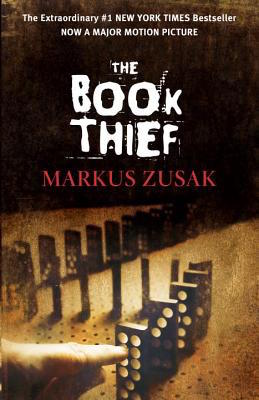
At one of our high school librarian monthly meetings, we compared titles that have been most popular via check-outs in the last 2 years and found some similar titles. We are able to use our circulation system to generate such lists. My top two books at Garfield High were The Book Thief by Markus Zusak and The Fault in Our Stars by John Green. I think these are popular because they deal with such difficult and tragic topics as death, prejudice and stereotypes in a stark but sensitive way. Both books also feature male and female protagonists so that they don’t appeal to one gender over another.
Social justice is emphasized in our school through student participation in a variety of clubs and through curriculum that faculty have developed in a variety of classes. I think these stories touch on how to face personal and societal challenges and are realistic yet hopeful. They are written by young adult authors who know how to craft a meaningful tale and both have also been produced as films.
It is hard to choose just one book, of course, and our Kindles and Nooks have been popular as well. If we don’t have a title in our library, then I download the book electronically onto the device and check it out to a student. I have 20 of these in the collection and more than half are gone at any given time.
Thank you so much to all the librarians who agreed to speak to me for this series. It was an absolute delight. And we will continue to talk about the terrible inequality issues facing Seattle's public shool libraries in the weeks and months ahead. #SPSLibraryEquity is very important to us, and to our readers, and we'll keep letting you know how you can help.
Jim Harrison, the prolific half-blind masculinist writer of many books of fiction and poetry, has died at 78.
Harrison was perhaps the last of a certain kind of writer, a craggy individualist compared often (to his apparent annoyance) to Hemingway and Faulkner; a man of great appetites (of which food should be included, as he wrote extensively on the subject), an outdoorsman, and, as might be imagined, an iconoclast of the particular rugged American variety.
He enjoyed his solitude ("I put a sign up in my driveway — 'Do not stop here unless you’ve called first' — but I didn’t have a phone"), but survived his wife of fifty years by only five months.
His string of awards and accolades was long and storied, and includes a Guggenheim Fellowship, as well as election to the American Academy of Arts and Letters.
His poetry was sometimes published by Copper Canyon Press — which is a Northwest connection worthy of note. Maybe it's right to close by quoting from one: in his poem "Barking", he said:
The moon comes up.
The moon goes down.
This is to inform you
that I didn’t die young.
Age swept past me
but I caught up.
The Sunday Post for March 26, 2016
Legalize It All
Dan Baum exploded the internet with his opening paragraphs of this piece about legalizing drugs, but the rest of it is worth spending time with.
At the time, I was writing a book about the politics of drug prohibition. I started to ask Ehrlichman a series of earnest, wonky questions that he impatiently waved away. “You want to know what this was really all about?” he asked with the bluntness of a man who, after public disgrace and a stretch in federal prison, had little left to protect. “The Nixon campaign in 1968, and the Nixon White House after that, had two enemies: the antiwar left and black people. You understand what I’m saying? We knew we couldn’t make it illegal to be either against the war or black, but by getting the public to associate the hippies with marijuana and blacks with heroin, and then criminalizing both heavily, we could disrupt those communities. We could arrest their leaders, raid their homes, break up their meetings, and vilify them night after night on the evening news. Did we know we were lying about the drugs? Of course we did.”
The Impossible Task of Writing Historical Fiction
Kelly Kerney cracks open the heart of writing about history with verisimilitude, under that uncomfortable title of "historical fiction".
Too often in literature, history is either romantic background against which human dramas are played out, or a force buffeting helpless characters through a chain of events beyond their control. In reality, our relationship with history — especially for Americans — is much more dynamic. It has shaped us and we have shaped it, from the politicians we elect to the products we buy. History is not consigned to an academic bubble or a genre and it is not in the past. History is all around us, a continuum on which the past, present and the future interact constantly. Bear with me on this. I promise I’m not going to bust out any crystals. When I embarked on this novel a decade ago — a project that explores the surreal and tragic history of American intervention in Guatemala — my goal was to track this continuum and drag this history from the past. I didn’t want my readers’ hearts to merely break for the characters or even for real people who lived fifty years ago. I wanted their hearts to break for an entire nation suffering on their own continuum — now.
Up Against the Centerfold: What It Was Like to Report on Feminism for Playboy in 1969
Susan Braudy was the first woman to write for Playboy, and the job she was hired to write about was the "new feminists".
Jim Goode, Playboy’s articles editor, contacted me that afternoon. Speaking more slowly than I thought a human could, he explained that Playboy wanted an objective account of the entire spectrum of the brand new “women’s lib” movement. “These women have important things to say, and I want our readers to hear them,” he said. “Let yourself go. Write anything you like but don’t pass judgment. Be fair.” He concluded, “Write in a tone that’s amused if the author is amused, but never snide.”
The Things We Do To Promote The Books We Write
Summer Brennan, on undertaking a book tour.
Becoming a professional author can require writers to do strange and unnatural things. These acts against nature can include, but are not limited to: stepping away from the computer screen, leaving the house, and donning garments other than pajamas. Just when we’re feeling most comfortable in our private fug of creativity and creation that has led to the imminent existence of a book by us, the doors of our caffeine-fueled bower are thrown open and the world sweeps in, horns blazing, opportunities whizzing by and out of sight like swallows. I am speaking of course of the book publicity tour.
This Is Our Reality: Why I Couldn't Hold Back About the Bay Area's Real Transit Problem
In a week that saw Seattle's own light rail system expanding, the Twitter account for BART in the Bay Area dedicated itself to frank honesty.
Nearly every major public transit system in America faces a similar laundry list of woes—see the litany of problems in New York and Washington D.C., the latter of which had to shut down its Metro for an entire day last week. But I'm not here to wax nihilistic. Far from doing nothing, the people at BART are working feverishly to fix the system within severe financial constraints and, frankly, an increasingly hostile attitude toward public institutions in America. We've identified funding for most of our new Bombardier-produced rail cars, which are coming next year to replace the original 1972 fleet. We're building a new maintenance complex to repair damaged trains more quickly and are replacing miles of worn rail at a brisk pace. We're not sitting on our hands, and we're certainly not resigned to letting what we have crumble around us.
Ordinary Women - Kickstarter Fund Project #12
Every week, the Seattle Review of Books backs a Kickstarter, and writes up why we picked that particular project. Read more about the project here. Suggest a project by writing to kickstarter at this domain, or by using our contact form.
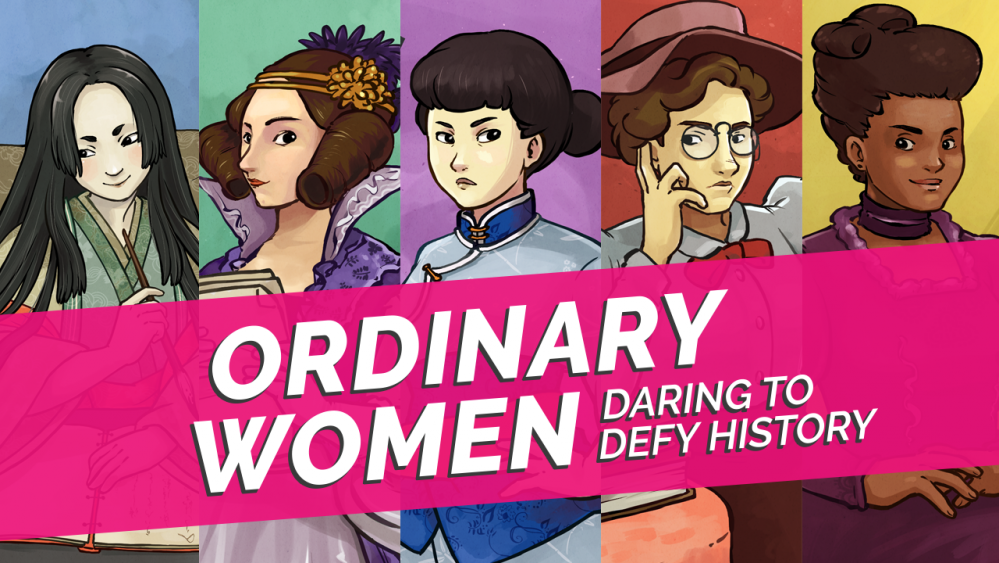
What's the project this week?
Ordinary Women. We've put $20 in as a non-reward backer
Who is the Creator?
What do they have to say about the project?
Ordinary Women: Daring to Defy History is Feminist Frequency's new video series about challenging stereotypes, smashing the status quo, and being defiant.
What caught your eye?
You may know Feminist Frequency, and Anita Sarkeesian, from her Kickstarter campaign for the video series Tropes vs Women, which you may have heard about from the absolutely ludicrous, coordinated, and horrifying backlash against the project. The thing was that the backlash itself only proved the need for the videos she was making.
This series looks at women from history who stood out, fought against the societal roles prescribed them, and made a difference. Pretty cool.
Why should I back it?
The more women controlled media there is, the more women-centered stories there will be. That equation is easy to understand. What's harder to understand is how freaked out certain men get by the very fact that Feminist Frequency exists. They see conspiracy theories so nonsensical and overblown that, when you watch a video and find just a nicely produced video essay about presentation of gender stereotypes that is really kind of gender & media studies 101 told in a straight-forward non-inflammatory comprehensive way with a chill narrator who patiently makes her points and throws no bombs, you end up scratching your head about why the hell they freaked out so bad.
Then you decide to back everything she does because you hope that, in the balance of power, people like her end up having more than the people fighting her. And, because, after seeing her talk once you heard her say this great thing that has stuck with you ever since: "One of the most radical things you can do is to actually believe women when they talk about their experiences."
How's the project doing?
They need the help. They have 12 days to go, and they're only at under $84,000 of a $200,000 goal. They're using a new Crowdfunding Platform called Seed and Spark that is geared towards films, instead of Kickstarter this time. If you're in, better get in soon to help get them to their goal.
Do they have a video?
Kickstarter Fund Stats
- Projects backed: 12
- Funds pledged: $240
- Funds collected: $160
- Unsuccessful pledges: 0
- Fund balance: $800
Book News Roundup: Cheap Wine & Poetry, The Lulu Fund, and Anonymous targets a bookstore
The lineup for the final Cheap Wine & Poetry at the Hugo House's current location has been announced. Sarah Galvin, Tara Hardy, Roberto Ascalon, and Michelle Peñaloza will be your readers at this historic event. This is the most consistently entertaining — and consistently crowded — poetry reading series in town, and on April 7th it will say goodbye to the stage where it was born. What's next for Cheap Wine & Poetry and its sister series Cheap Beer & Prose? Will it end, or will it continue? If it continues, where will it take place? I've got no answers for you just yet, but stay tuned.
Speaking of Cheap Wine & Poetry, your CW&P host Jeanine Walker is hosting her variety show, Mixed Bag, at the Royal Room tomorrow night. It features music and comedy and improv and even though it's not strictly a literary event, you should still go.
Beverly Cleary turns 100 on April 12th! What are her secrets for living a century? "Well, I didn't do it on purpose!"
Did you read this Salon piece about academia and writing? It's got a barn-burner of a first paragraph:
It is widely held and discussed in our literary community that we are not inclusive and remain biased in favor of the white male. The ongoing conversation about lack of access, lack of diversity of voice, and underrepresented writers led us to look critically at the system in place to discern what was working and what was not. What does it mean to be successful in the literary world? Who gets the prizes? Who has access to mentors and networks? Who is attending residencies that foster community, collaboration, and offer more time to write? In answering these questions, we kept getting pulled back to the same place: Academia. If literature has a gatekeeper, that gatekeeper is academia.
The writers of that Salon piece have launched something called The Lulu Fund which vows to work "within the literary community to shift established systems that benefit the few, and to promote the understanding within intersectional feminism that racial, gender, and class justice must be sought as a whole." The organization will give out their first awards, The Lulus, on March 31st.
Online activism group Anonymous has singled out Denver bookstore The Tattered Cover for their support of a business organization which promotes policies that are anti-homeless.
In Bosnian, says [Aleksandar] Hemon, “there are no words for fiction and nonfiction, or the distinction thereof”.
The Help Desk: Jonathan Livingston See-ya
Every Friday, Cienna Madrid offers solutions to life’s most vexing literary problems. Do you need a book recommendation to send your worst cousin on her birthday? Is it okay to read erotica on public transit? Cienna can help. Send your questions to advice@seattlereviewofbooks.com.
Dear Cienna,
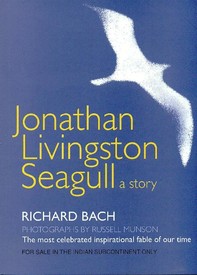
Pavel, Capitol Hill
Dear Pavel,
Here is what you must do:
Invite yourself over to your newish partner’s house and ask her to take a seat on her own furniture.
Tell her you have something to say, and you hope she doesn’t judge you for it because you’re rather insecure and even though what you have to say will definitely make you seem like a jerk, you hope she is mature enough to keep those thoughts to herself that because maintaining the illusion that you’re not a jerk is very important to your half-baked ego.
Tell her that you spotted Jonathan Livingston Seagull sitting in her communal basement propping up piece of broken furniture that may or may not belong to her.
Explain to her that this has killed your boner for your fledgeling relationship. Since your previous few statements may seem nonsensical to her, you may wish to use an analogy to explain yourself: Your boner is like a whistle pig – a speed racing copulator that’s suspicious of its own shadow and absolutely terrified of top- or even bottom-level predators like seagulls and women who may or may not read books it disapproves of. Explain that your rodent boner for her is dead now and its carcass is being carried off by metaphorical seagulls to a new plane of existence that is not unlike heaven, yet isn’t heaven (if she’s actually read Jonathan Livingston Seagull these words may comfort her).
Finally, shit your pants. This will ensure she’s too busy getting you off her furniture and out the door to care about what a jerk you are. Months, even years from now she will remember you with confusion and pity. Your story will become the fodder of legendary happy hours, which may be the best thing she gets out of this abbreviated relationship.
Kisses,
Cienna
Portrait Gallery: Maged Zaher
Each week, Christine Marie Larsen creates a portrait of a new author for us. Have any favorites you’d love to see immortalized? Let us know

Seattle poet Maged Zaher reads Saturday, at Open Books. Paul reviewed his new book earlier this week.
Written under the influence
Published March 24, 2016, at 12:00pm
Clare Vaye Watkins wrote an essay that questioned her motivation for writing this book that we now review.
Thursday Comics Hangover: A Yeti sighting
Over the weekend at the APRIL Book Expo, The Seattle Review of Books table was directly next to Yeti Press, the small comics publisher run by Fantagraphics employee RJ Casey in his free time. (Yes, Casey runs a comic book company when he’s not busy working at a day job for a comic book company. I suspect he also runs a smaller comic book company when he’s looking to unwind from his other two comic book companies.) In between visitors, I asked Casey what Yeti’s newest comic was, and he handed me a small comic titled beds! Beds! BEDS!.
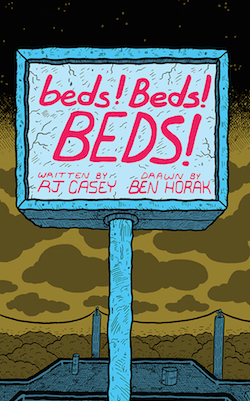
“You know what, honey…I just love you with all my heart,” the father says to the mother. And then they make out, and it’s a truly unsettling panel. Horak draws every single line in their entwined tongues and every single particle up their noses, as a leering, big-eyed baby looks on. Horak is clearly playing up the grotesquerie here, going for a kind of JR Williams-meets-Ed “Big Daddy” Roth kind of feel. Everything is cartoonish, but also heavily detailed, with every wrinkle and sag and flaw accentuated for utmost impact.
beds! Beds! BEDS! is a very short comic about the horrors of commerce — the creepiness of salespeople and the discomforting entitled self-satisfaction of the American family. It’s a straight-up caricature of a scene that plays out across the country every day (a family buys a bed for a kid who has outgrown a crib) but with all the throbbing veins and emotional neediness and other gory details amped all the way up. Bed shopping has never been so alarming, or so craven, or so hideous.
This is the sort of thing that comics published by Casey’s Yeti Press do best: using experimental and energetic comics, they focus on one single thing — a sandwich, say, or a ballpark mascot — using comics that simultaneously draw you in and repulse you. If Mad Magazine were still relevant today, they’d likely be publishing comics like beds! Beds! BEDS!, rather than the same old tired movie parodies that have become their stock in trade. Yeti Press’s books may not appeal to everyone, but they fill a necessary function in the comics world: they’re the punky, adventurous outsiders who aren’t afraid to make the uncommercial decision, much to the delight of a small-but-avid audience of cartooning aficionados.
Book written by robot almost wins literary award
The Japan News reports:
A short-form novel “coauthored” by humans and an artificial intelligence (AI) program passed the first screening process for a domestic literary prize, it was announced on Monday. However, the book did not win the final prize.
Some of you out there may interpret this news as apocalyptic. If so, you should be warned that the apocalypse is upon us already: news agencies publish stories written by robots on a regular basis, though this programmer's prediction that a robot would win the Pulitzer by 2016 seems unlikely to come true.
People have been programming computers to write novels for years now. The earliest one I can find right now is from 1993. Wikipedia says:
Just This Once is a 1993 romance novel written in the style of Jacqueline Susann by a Macintosh IIcx computer named "Hal" in collaboration with its programmer, Scott French. French reportedly spent $40,000 and 8 years developing an artificial intelligence program to analyze Susann's works and attempt to create a novel that Susann might have written. A legal dispute between the estate of Jacqueline Susann and the publisher resulted in a settlement to split the profits, and the book was referenced in several legal journal articles about copyright laws. The book had two small print runs totaling 35,000 copies, receiving mixed reviews.
Seems as though we're not very far away from the world's first critically acclaimed novel written by a computer. I, for one, welcome our new robotic Nobel Laureates.
Third Place Books' fancy new van includes some nice shade thrown at Amazon on the back door:
Check out this sweet ride. #bookmobile #freecandy #thirdplacebooks #indie #driveslowhomie https://t.co/3j8A34hJ8F pic.twitter.com/JbhJV1s0cR
— Third Place Books (@ThirdPlaceBooks) March 22, 2016
Your Week in Readings: The Best Literary Events from March 23rd - March 29th
Wednesday March 23: Robert Sawyer
Sawyer’s science fiction novels are about what happens when you introduce one high-concept sci-fi element to an otherwise ordinary world. He then spends the rest of the book examining the ramifications of that collision. His newest, Quantum Night, uses experimental psychology and quantum physics to explore human nature. University Book Store, 4326 University Way N.E., 634-3400, bookstore.washington.edu. Free. All ages. 7 p.m.
Thursday March 24: Haunted House: A Reading
Haunted House: A Reading Halloween is a long way off, but you never really need an excuse for a good scary story. Seattle writers Adrian Ryan, Sarah Galvin, Jack Bennett, and Paul Rinn tell their most frightening tales, with (presumably creepy) music by Must I Mind and hosting by the indomitable Jackie Hell. Eastern Cafe, 510 Maynard Ave S., 623-1776, fashionhotdog225.com. Free. All ages. 7 p.m.
Friday March 25: Glossophonic
Hollow Earth Radio’s glorious Magma Festival is adding a few literary events to the mix this year, including this beauty of a night, pairing “experimental, spatial sound ensemble” Fhtagn and electronic trio Netcat with readings by Seattle stalwarts Kreg Hasegawa and Lauren Ireland, along with NYC-based author Sue Landers. Hollow Earth Radio, 2018 E. Union St., 617-1683, hollowearthradio.org. Free. All ages. 8 p.m.
Saturday March 26: Maged Zaher
The Seattle-by-way-of-Egypt poet reads from his new book The Consequences of My Body. Read my review here.
Open Books, 2414 N. 45th St., 633-0811, openpoetrybooks.com. Free. All ages. 4:30 p.m.
Sunday March 27: Norwescon
Norwescon is our largest and longest-running science fiction and fantasy convention. Every year a small army of cosplayers, LARP-friendly sword dealers, novelists, and comics luminaries pack into a SeaTac hotel for a happy (and surprisingly horny) weekend of unabashed fandom. It’s a supportive, friendly environment to geek out about whatever you love. DoubleTree by Hilton, 18740 International Blvd., (425) 243-4692, norwescon.org. $30. All ages. 9 a.m.
Monday March 28: Nguyen Phan Que Mai
You don’t read enough work in translation. Translated poetry is a great way to learn about another culture without taking on crippling airfare costs. Tonight, Vietnamese poet and translator Nguyen Phan Que Mai reads from her first book to be translated to English, The Secret of Hoa Sen. Hugo House, 1634 11th Ave, 322-7030, hugohouse.org. Free. All ages. 7 p.m.
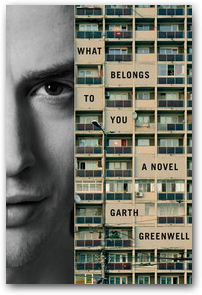
Tuesday March 29: Garth Greenwell
Greenwell’s debut novel, What Belongs to You, has soaked up accolades from just about every review outlet imaginable. Tonight’s reading gives you a chance to take the hype out for a test drive before investing in the book. Greenwell will be joined onstage by novelist Idra Novey and Shelf Awareness reporter Davie Wheeler. Elliott Bay Book Company, 1521 10th Ave, 624-6600, elliottbaybook.com. Free. All ages. 7 p.m.
Saved from the flames of history
Published March 22, 2016, at 4:56pm
A new novel by Seattle author Bharti Kirschner imagines a life for a forgotten, nameless woman in Indian history.
Shakespeare's First Folio is now at the Seattle Public Library. (At the Seattle Times, Mary Ann Gwinn wrote about the opening festivities for the Folio.) You can find a full calendar of Folio-related events — including readings, movies, plays, music and more — on SPL's website, and you can get tickets to visit the Folio here.
You can now sign up for Hugo House's spring quarter classes online.
Prince is publishing a memoir. We are all very excited about this, but we hope that he will use the letter "I" rather than his usual pictograph of an eye, because that will get very tiring very fast. Same thing with "to" and "2."
Good news! The online editorial cartoon magazine The Nib is returning! They've got an open call for non-fiction and satirical cartoons up right now.
Speaking of online magazines, have you seen the new poetry magazine Public Pool? They've got a very impressive array of young, diverse poets.
Roxane Gay's powerful debut novel The Untamed State is going to be a movie. Gay is co-writing the screenplay.
A correction on an earlier post
Due to a filing error, we mistakenly attributed a poem by a different poet to Jane Wong. The mistake was entirely ours, and we have deleted the post from the site and social media. We apologize to Jane Wong for the egregious mistake, and to our readers, and we’ll put procedures in place to ensure it won’t happen again.
...in love and war
Published March 22, 2016, at 11:52am
Maged Zaher is a poet of two worlds: gentrified Seattle and post-Arab Spring Egypt. But in his newest book, his poetry is changing, becoming something different. What's going on here?
Three things to look at this afternoon
The (I guess NSFW, maybe?) photograph of the "naked language mural" by artist Vladimiro Lunardon up at The New Post-Literate is a thing of beauty. It's exactly what reading great literature feels like to me. Lunardon's art employs lots of writing-like imagery, and some of it is really quite beautiful.
The great Roger Langridge has a new cartoon of "Abandoned First Drafts" up on his blog for your enjoyment. (I would absolutely read that fourth panel.)
Chip Zdarsky's addition to the conclusion of Frankenstein solves one of literature's greatest problems.
